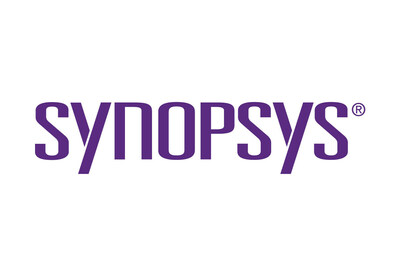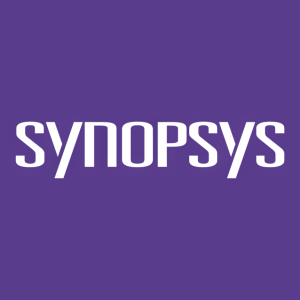Synopsys Accelerates Chip Innovation with Production-Ready Multi-Die Reference Flow for Intel Foundry
Synopsys has announced the availability of its new AI-powered, production-ready multi-die reference flow for Intel Foundry's EMIB advanced packaging technology. This solution includes the Synopsys 3DIC Compiler, which aids in the co-design and analysis of multi-die systems. It integrates with Synopsys 3DSO.ai to optimize signal, power, and thermal integrity, achieving notable productivity gains and enhanced system performance.
The multi-die reference flow facilitates efficient die-to-die connectivity and high memory bandwidth, addressing the increasing demands for processing power and performance in AI and high-performance computing applications. This innovation supports design complexities, enhancing manufacturing and reliability while reducing integration risks and accelerating time-to-market. The integration can cut effort by up to 30% and improve quality by 15% compared to traditional methods.
Synopsys’ solution is now available from both Intel Foundry and Synopsys, aiming to provide designers with comprehensive tools for developing advanced, multi-die systems.
- None.
- None.
Insights
Synopsys has announced a significant enhancement to its multi-die reference flow technology, optimized for Intel Foundry's EMIB (Embedded Multi-Die Interconnect Bridge) advanced packaging technology. This news is impactful for investors as it reveals the strategic technology advancements that could drive the company's future revenue growth.
Revenue Potential: The development of AI-driven, production-ready integrated circuits (ICs) that are capable of handling billion- to trillion-transistor designs aligns directly with the increasing demand for high-performance computing (HPC) and AI applications. These are rapidly growing markets, with semiconductor sales expected to exceed
Competitive Edge: The integration with Intel Foundry’s EMIB technology could provide a competitive edge to Synopsys, positioning it as a key player in the multi-die design space. The claimed
Investment Implications: For stakeholders, these technological advancements could enhance Synopsys' market share and profitability. While the immediate financial impact might be modest, the long-term outlook appears promising, especially if the technology gains wider adoption. Investors should monitor the uptake of this technology in the market and any subsequent financial performance indicators.
The advancement announced by Synopsys concerning its 3DIC Compiler and AI-driven multi-die reference flow is remarkable for several reasons. The multi-die design technology facilitates the integration of multiple chips into a single package, addressing growing demands for higher computing power and bandwidth in AI and high-performance computing (HPC) applications.
Technical Benefits: The Synopsys 3DIC Compiler provides a unified platform for exploration, design and sign-off, which is critical in managing the complexities of multi-die architectures. Moreover, the integration with Ansys® RedHawk-SC Electrothermal™ multiphysics technology is important for ensuring power and thermal integrity, which are key challenges in multi-die designs.
Efficiency and Performance: The AI-driven optimization enabled by Synopsys 3DSO.ai further enhances the efficiency of the design process. This could lead to improved performance metrics, such as faster processing times and better thermal management, which are essential for maintaining system reliability and performance under heavy computational loads.
Market Impact: These technological advancements not only place Synopsys at the forefront of multi-die design innovation but also set a high standard for competitors. As more companies seek advanced packaging solutions to meet the growing demands of AI and HPC, Synopsys' technology could become a important component in the industry's toolkit.
The introduction of Synopsys’ AI-driven multi-die reference flow for Intel Foundry’s EMIB technology is a noteworthy development in the semiconductor industry. As bandwidth and processing power demands keep rising, the market for multi-die designs is poised for growth.
Market Trends: The semiconductor industry is witnessing a shift towards advanced packaging technologies, driven by the need for higher performance and efficiency. Multi-die integration, enabled by technologies like EMIB, addresses these needs by allowing more transistors to fit into a smaller footprint without compromising on performance.
Adoption Rates: The combination of Synopsys IP and 3DIC Compiler can lead to significant efficiency gains, as noted by the potential
Strategic Partnerships: The collaboration between Synopsys and Intel Foundry highlights the importance of strategic partnerships in driving technological innovation. Such partnerships can accelerate the time-to-market for new technologies and enhance the competitive positioning of both companies involved.
Investor Perspective: Investors should watch for the adoption rate of this technology among semiconductor firms and any subsequent increase in Synopsys' market share. While the immediate financial impact might not be drastic, the long-term potential for growth in the multi-die design market is significant.
3DIC Compiler Co-Design and Analysis Solution Combined with Synopsys IP Accelerates Heterogeneous Integration for Intel Foundry's EMIB Technology
Highlights
- Synopsys AI-driven multi-die reference flow now extended for Intel Foundry's EMIB advanced packaging technology accelerates quality-of-results for heterogeneous integration
- Synopsys 3DIC Compiler, a unified exploration-to-signoff platform, supports multi-die co-design of Intel Foundry's EMIB technology
- Synopsys IP for multi-die design supports efficient die-to-die connectivity and high memory bandwidth requirements
"As bandwidth demands soar to new heights, companies are turning to multi-die designs at an accelerated pace to achieve greater levels of processing power and performance for their AI and high-performance computing applications," said Sanjay Bali, vice president of strategy and product management for the Synopsys EDA Group. "Our long-standing and deep collaboration with Intel Foundry, resulting in a production-ready AI-driven multi-die reference flow for EMIB technology, provides our mutual customers with a comprehensive solution that helps them develop their billion- to trillion-transistor multi-die systems."
"Addressing the design and packaging complexities of multi-die architectures requires a holistic approach to solving the thermal, signal integrity, and interconnect challenges," said Suk Lee, VP & GM of Ecosystem Technology Office, at Intel Foundry. "Intel Foundry's manufacturing and advanced packaging technologies, combined with Synopsys' certified multi-die reference flow and trusted IP, provides designers with a comprehensive and scalable solution for fast heterogeneous integration using the Intel Foundry's EMIB technology."
AI-Driven EDA Reference Flow and IP for Multi-Die Designs
Synopsys offers a comprehensive and scalable multi-die solution for fast heterogeneous integration. The solution, from silicon to systems, enables early architecture exploration, rapid software development and system validation, efficient die-package co-design, robust die-to-die connectivity, and improved manufacturing and reliability. Adopted by multiple leading customers, Synopsys 3DIC Compiler, a key component of the multi-die solution, is integrated with Ansys® RedHawk-SC Electrothermal™ multiphysics technology, to address the power and thermal signoff critical for 2.5D/3D multi-die designs. In addition, the solution maximizes system performance and quality of results at a rapid pace with Synopsys 3DSO.ai, an autonomous AI-driven optimization engine for 2.5D and 3D multi-die designs.
Synopsys is developing IP for Intel Foundry process technologies, providing the interconnects needed to build multi-die packages with reduced integration risk and accelerated time-to-market. The combination of Synopsys IP and Synopsys 3DIC Compiler can enable up to
Availability and Resources
The reference flow is available now from either Intel Foundry or Synopsys.
- Learn more about the Synopsys Multi-Die Solution: https://www.synopsys.com/multi-die-system.html
- Learn more about Synopsys IP: https://www.synopsys.com/designware-ip.html
- Intel 18A collaboration announcement: https://news.synopsys.com/2024-02-21-Synopsys-and-Intel-Foundry-Accelerate-Advanced-Chip-Designs-with-Synopsys-IP-and-Certified-EDA-Flows-for-Intel-18A-Process
About Synopsys
Catalyzing the era of pervasive intelligence, Synopsys, Inc. (Nasdaq: SNPS) delivers trusted and comprehensive silicon to systems design solutions, from electronic design automation to silicon IP and system verification and validation. We partner closely with semiconductor and systems customers across a wide range of industries to maximize their R&D capability and productivity, powering innovation today that ignites the ingenuity of tomorrow. Learn more at www.synopsys.com.
Editorial Contact
Kelli Wheeler
Synopsys, Inc.
(650) 584-5000
corp-pr@synopsys.com
1 Benchmark test results as of February 2024 by Synopsys comparing manual and automated flows using Synopsys IP and Synopsys 3DIC Compiler.
![]() View original content to download multimedia:https://www.prnewswire.com/news-releases/synopsys-accelerates-chip-innovation-with-production-ready-multi-die-reference-flow-for-intel-foundry-302179920.html
View original content to download multimedia:https://www.prnewswire.com/news-releases/synopsys-accelerates-chip-innovation-with-production-ready-multi-die-reference-flow-for-intel-foundry-302179920.html
SOURCE Synopsys, Inc.








